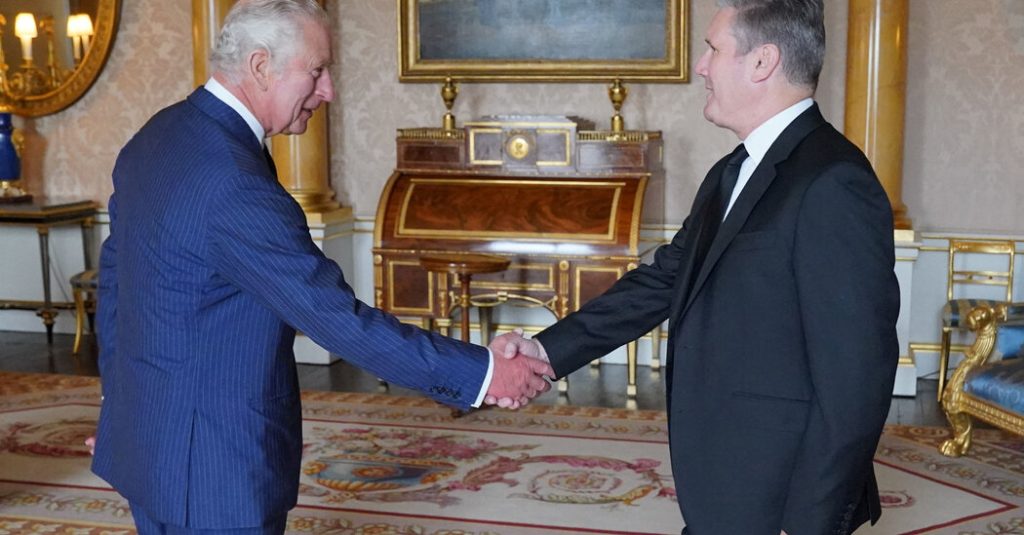Keir Starmer, the leader of Britain’s Labour Party, who once proposed the abolition of the monarchy, disavowed these statements as youthful indiscretions. If he wins the general election, he could be more politically aligned with Prince Charles, the future king, than the last two Conservative prime ministers. Starmer and Charles share views on issues like climate change, housing, and immigration, which could lead to a productive relationship despite the king’s constitutional restriction from political involvement. Starmer’s progressive policies and stability could align with Charles’ vision for a unified Britain.
As prime minister, Starmer would have a weekly meeting with Charles, keeping the discussions confidential. Experts believe that a Labour government under Starmer would address social issues in line with the king’s concerns. While Charles cannot vote as sovereign, his views on issues like organic farming and architecture have been public in the past. His criticism of the Conservative government’s asylum seeker policy in 2022 highlighted his willingness to voice opinions on sensitive matters, prompting a rebuke from then-Prime Minister Boris Johnson.
Charles might find a Labour government more supportive of his views on climate policy, especially after the Conservative government pivoted on emission-reduction targets. Labour’s green investment plan and commitment to environmental goals could resonate with the king’s priorities. While Labour has made promises in this area, there are questions about their ability to deliver substantial actions. Similarly, Starmer’s legal background might provide a structured approach that could prevent constitutional quagmires like those faced by Queen Elizabeth II and her interactions with Prime Ministers Johnson and Truss.
Historical relations between the monarchy and Labour have been more cordial compared to the monarchy’s exchanges with the Conservative Party. Harold Wilson, a Labour prime minister, was reportedly well-liked by Queen Elizabeth II, suggesting a comfort level with Labour leaders. Keir Hardie, an early Labour leader, had anti-monarchy sentiments, but Labour has since evolved into a constitutional party. Starmer’s leadership purge of the hard left within Labour could have cleared any residual anti-monarchist feelings within the party, as seen during a party conference when the national anthem was played for the first time after the queen’s death, and Starmer sang “God Save the King.”
In conclusion, Keir Starmer’s potential premiership as Prime Minister could result in a more harmonious relationship with Prince Charles, given their shared focus on social issues and concerns such as climate change. Despite Starmer’s past comments on the monarchy, his evolution and leadership style could align well with the king’s vision for a unified Britain. If Starmer prioritizes stability, progressive policies, and legal adherence, he may find an ally in Charles, who values consensus over division in governance. The potential partnership between a Labour government under Starmer and a King Charles III could usher in a new era of cooperation and shared values on key national and global challenges.


